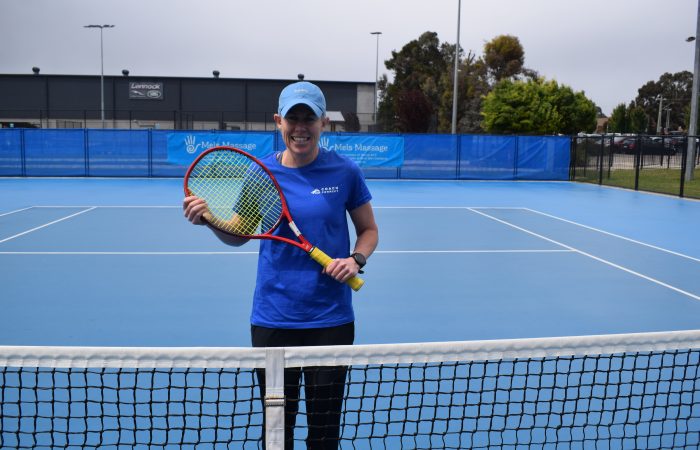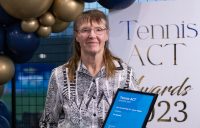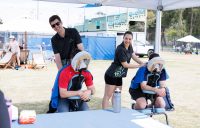
When Kylie Moulds left the sport of tennis after a professional career and years of coaching, part of her knew she would return.
Kylie first found her love for tennis in a small country town in Adelaide Hills, where she credits her mum with introducing her to the sport.
“I played both netball and tennis growing up, and I was quite good at both. However, I liked the individual nature of tennis a little bit more. As a child I was quite introverted, so it allowed me to show off my personality in games,” Kylie said.
“I think tennis as a sport is an amazing vehicle, it opened a lot of doors for me. I never would have imagined coming from a small town I would be able to travel around the world. But it wasn’t just the travel that I loved, it was meeting new and diverse people.”
“At a young age, it certainly helped me gain a deeper understanding of myself and taught me all these different skills from time management, preparation and goal setting, to coping and adaptability skills,” Kylie said.
Kylie stopped her professional playing career earlier than others, but having been exposed to coaching as a teen, it was where she turned her attention to next.
“My mum had a big influence on me as a netball coach and I loved teaching people. For me, getting into coaching wasn’t simply because I wanted to stay in the sport, it’s just that I loved helping people and coaching was a way to do that,” Kylie explains.
After spending time in New York as a coach, Kylie retuned to Australia where she took up a role as Assistant State Coach in South Australia, before progressing to a national role at Tennis Australia and the Australian Institute of Sport as a touring coach.
But the commitment of coaching took its toll on her.
“I was travelling nine or ten months of the year, it’s hard to put so much time into something without something else breaking down. I never had a good mentor in my late twenties or a strong support network. I didn’t have anybody who could say if I was making the right or wrong decision.
And I think I always wanted to do more than coaching, there was something missing. So, I went back to university and studied behavioral science and psychology.”Kylie moved on to working in other sports like softball and netball, before moving to the education space as a lecturer in sport and exercise science at the University of Melbourne, the University of Sydney, and now her current role at the University of Canberra.
But the pull of returning to tennis was strong.
“Tennis forms part of my sense of identity and belonging. A part of me was missing when I wasn’t involved in tennis. It’s taken me a long time to align everything I wanted to do with my career and to understand the importance of tennis in my life,” she reflects.
Kylie is now completing her PhD at the University of Sydney, examining the motivational requirements of sport coaches and the impact coaches can have on the wellbeing of young athletes. Alongside that work, she is also working with Tennis ACT in a mentorship role, supporting Women and Girls Lead Alison Bai in the delivery of initiatives related to Tennis Australia’s Women and Girls Strategy.
“That’s why I’ve come back, I really want to support female coaches and players. I want to give back to the space that I’m really passionate about.”
“The ultimate goal with my PhD is to further develop coaches to understand how much influence they can have on players in a positive or negative way. It’s an education piece I feel strongly about,” she said.
Kylie hopes she can support women coaches on their journey and act as a mentor she would have liked to have when she was coaching.
“In the women’s coaching space, I’ve been able to support Coach Connect, which is a mentoring program for women coaches. It’s a really great environment for women to share their ideas. For me personally, I’ve been able to share my journey of how I’ve come back to tennis,” Kylie said.
“I think for women coaches, a lot of the time, you don’t have someone there to bounce ideas off or you don’t have that support base. I think the idea of strength in numbers is true for this program, and I’m grateful I can support a program that brings women coaches together.”
When reflecting on her overall tennis journey, Kylie smiled, “I’ve really come full circle.”




